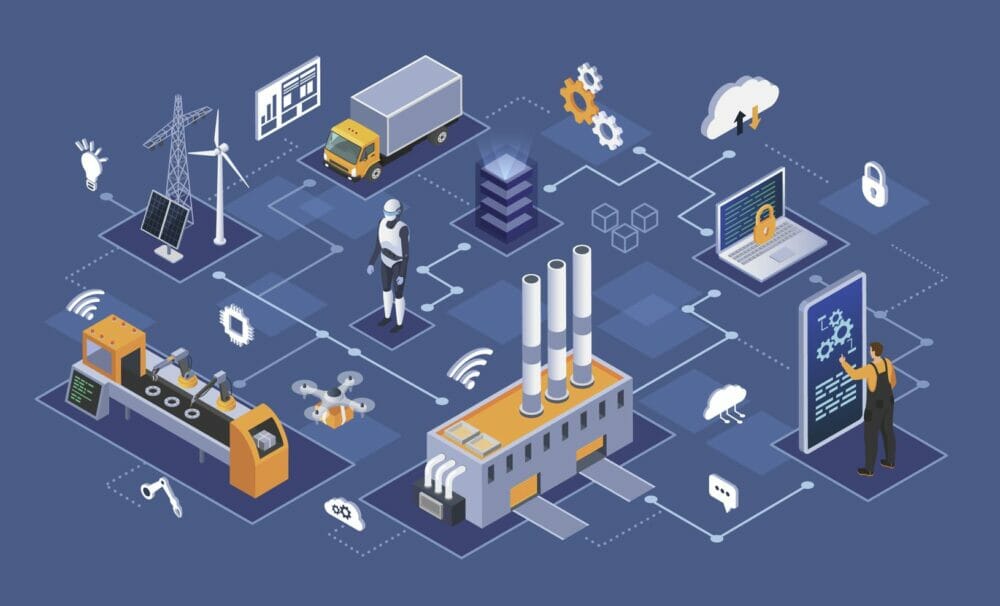By Jason Andersen, Vice President, Strategy and Product Management, Stratus Technologies
There is so much happening today with the Industrial Internet of Things (IIoT), from the continued recovery of manufacturing organisations amid the pandemic to market trends and predictions spanning the next several years. Because of this, it’s important that readers understand how Stratus solutions provide the foundation for transformation as well as where our platforms fit in the IIoT space.
Stratus and IIoT
Stratus has played a crucial role in successfully supporting mission-critical industrial automation for decades. This includes supervisory control and data acquisition (SCADA), human machine interface (HMI), and historian database solutions. We agree with many leading industry analysts, who see the evolution of these technologies and Edge Computing naturally supporting the adoption of IIoT, helping to fortify it. IIoT offers exciting opportunities for improving efficiency and productivity, but there are many components to consider beyond machine-intergrated sensors.
Stratus plays an extremely important role as our hardware and software solutions protect our customers’ networking and communications, data collection and analytics, automated controls, and decision support – which we consider to be the connective tissue of IIoT in manufacturing. We believe that our existing Edge Computing solutions will help customers deploy IIoT more quickly. The benefits provided by an always-on infrastructure in an energy management or manufacturing IIoT environment go beyond preventing unplanned downtime. Stratus plays an extremely important role as our hardware and software solutions protect our customers’ networking and communications, data collection and analytics, automated controls, and decision support – which we consider to be the connective tissue of IIoT in manufacturing. We believe that our existing Edge Computing solutions will help customers deploy IIoT more quickly. The benefits provided by an always-on infrastructure in an energy management or manufacturing IIoT environment go beyond preventing unplanned downtime.
IIoT is Breaking into New Industries
The evolution toward IIoT enables industrial automation technologies to be deployed in new industries and places. For instance, many process industries, endpoints, and stations – such as an oil pipeline – have needed to be manned by employees. New technologies enable more and more of these remote sites to be monitored and completely human-free. But this remote visibility comes at a price. If the system that provides remote monitoring goes down, nobody knows what is happening. In the natural gas industry, this is known as a “blind moment” and it’s a serious problem.
This situation is not limited to oil and gas pipelines. As factories in the semiconductor and other industries get larger and more automated, the goal is to achieve enhanced productivity with fewer people. Always-On visibility is a requirement to ensure that goal is met.
IIoT Compliance
Additionally, compliance comes into play. While data generated by IIoT is critical for production efficiency and productivity, in some industries this proliferation of data will require oversight and reporting. A good example of this is compliance within the food and beverage industry. If your organisation is subject to strict regulations, you can’t afford to lose data as it could result in expensive recalls, audits, or even fines. If your solution runs on hardware or software infrastructure from Stratus, data availability and integrity won’t be a concern because our servers are always on.
Implementing IIoT
Lastly, the transition to IIoT will come with implementation costs. Many organisations are taking their first steps toward IIoT by deploying virtualisation to reduce costs and embrace digitalisation to future-proof their business. However, the combination of the Always-On requirements with virtualisation in a non-data center environment can add unneeded costs and complexity.
Stratus builds fault tolerance, virtualisation, monitoring, and downtime prevention features into a single solution, providing the foundation for transformation at the edge. This provides organisations with a smaller technology footprint that doesn’t require a team of people responsible for many of the clustered environments.
As business and technology trends continue to reshape the IIoT industry, it is essential to know the best way to select, implement, and capitalise on Edge Computing opportunities with Stratus. Download our latest white paper, Transformation at the Edge: Architecting Your Infrastructure for Performance and Reliability, for more.
For more information, please visit www.stratus.comor follow on Twitter @StratusAlwaysOn.







